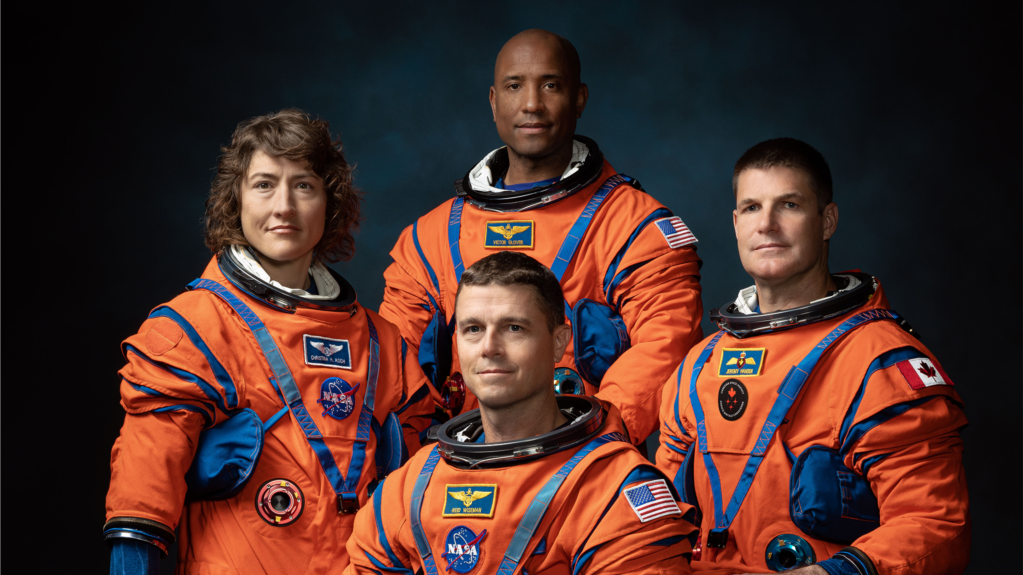The American space agency NASA has chosen the astronaut crew that will carry out a planned test mission around the moon next year.
The trip is part of NASA’s Artemis program, which aims to land the next Americans on the moon.
Four astronauts will take part in the flight, which NASA is officially calling Artemis II. Artemis II, planned for late 2024, will send the astronauts on NASA’s Orion spacecraft on a 10-day trip around the moon. The aim of the mission is to test all Orion’s systems with human astronauts in place.
Last December, Orion completed another test flight with no astronauts on board. During that test mission, called Artemis I, the spacecraft traveled more than 2.2 million kilometers around the moon and back. After the flight, NASA reported the Orion spacecraft had performed above the agency’s expectations.
If Artemis II is successful, a third mission, Artemis III, will be launched aiming to land astronauts on the surface of the moon. That effort – which NASA has said will include the first woman and person of color – is expected to take place in the coming years. It would be the first moon landing by astronauts since NASA’s Apollo 17 mission in 1972.
In announcing its choices for Artemis II, NASA named the first woman and first African American to be included on a lunar mission.
One of the astronauts is Christina Koch, who will serve as Mission Specialist 1. She is a 44-year-old engineer who holds the record for the longest continuous spaceflight by a woman. She also took part in NASA's first three all-female spacewalks.
Koch will be joined by Victor Glover. He is a 46-year-old U.S. Navy pilot who has carried out four spacewalks. Glover, who will serve as the mission’s pilot, will be the first Black astronaut ever chosen for a moon mission.
Also, part of the crew will be 47-year-old Jeremy Hansen, a colonel in the Royal Canadian Air Force, who will serve as Mission Specialist 2. Former U.S. Navy fighter pilot Reid Wiseman, also 47, will serve on Artemis II as the mission commander.
"The Artemis II crew represents thousands of people working tirelessly to bring us to the stars,” NASA Administrator Bill Nelson said in announcing the choices. “This is humanity's crew," he added.
Koch said to cheers from the crowd, “Am I excited? Absolutely. But my real question is: ‘Are you excited?’” she added.
The Canadian Space Agency got a seat on the flight because of its work with NASA on developing robotic arms and space station equipment. Hansen said he is thankful Canada is going to be part of the mission. “We are going to the moon together. Let’s go!” he said.
Artemis II is expected to reach a point more than 370,000 kilometers away from Earth. The traditional low-Earth orbit of the International Space Station is about 400 kilometers above Earth’s surface.
I’m Bryan Lynn.

